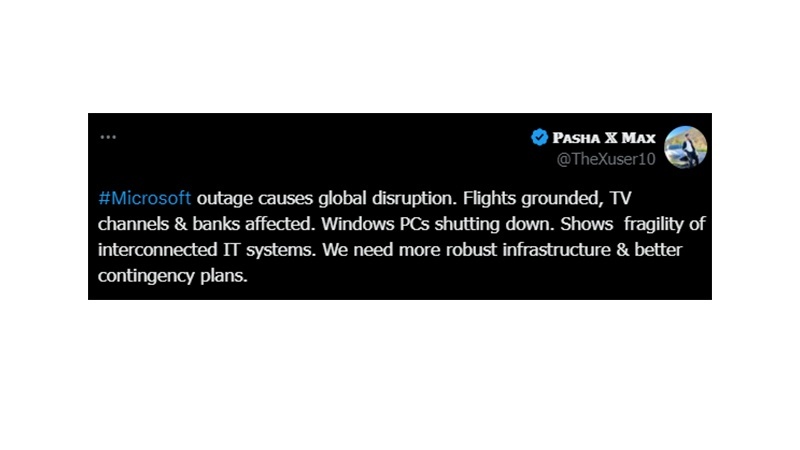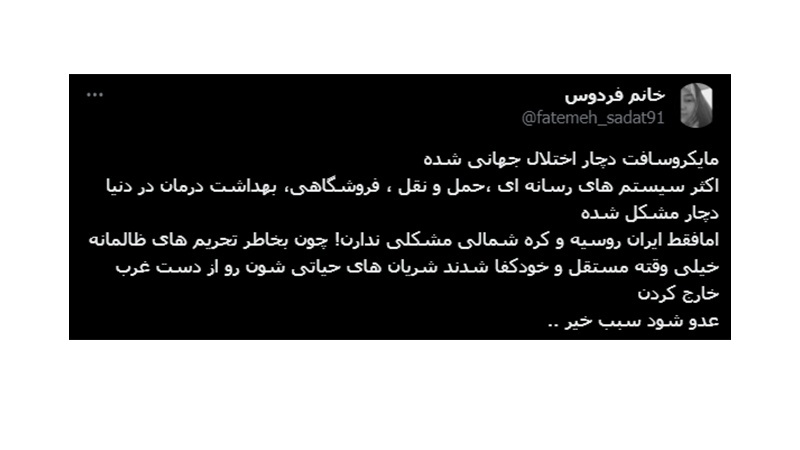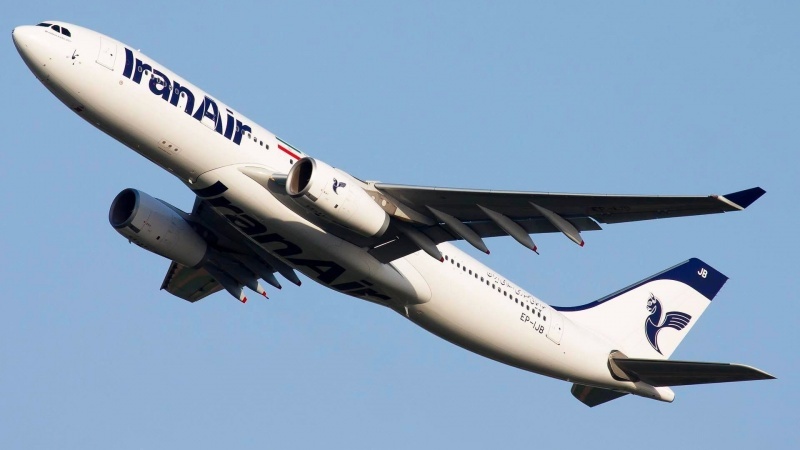Iran remains immune to global cyber disruption with indigenous knowledge
Pars Today - A widespread cyber disruption has caused numerous problems in airports, hospitals, and banks in various countries around the world. However, unlike the rest of the world, this disruption had no impact on Iran's network operations.
Since the early hours of July 19, many banks, airports, stock exchanges, media outlets, and airlines in countries around the world have faced disruptions. The disruption of some Microsoft services has been cited as the reason for this outage. According to Pars Today, Cirium, a company that monitors global air travel, announced that on Friday, July 19, around 11,000 commercial flights were scheduled worldwide, but 2,200 flights were canceled.
In this regard, Elon Musk, the owner of Tesla and the social network X (formerly Twitter), referred to the disruption of computer systems around the world as "Biggest IT fail ever."

Pasha X Max, a user of the social network X, also criticized the fragility of interconnected information technology systems around the world, writing:
“#Microsoft outage causes global disruption. Flights grounded, TV channels & banks affected. Windows PCs shutting down. Shows fragility of interconnected IT systems. We need more robust infrastructure & better contingency plans."

But Iran remained immune
After the global cyber disruption, the National Center for Space of Iran announced in a statement: Despite the widespread disruption of computer systems in many countries, no damage or disruption has been reported in providing of services to the Iranian people.
This is because Iran has been banned from receiving these services due to sanctions for years, and since then, indigenous alternative services have been designed and operationalized by young people and experts.
Amir Mohammadzadeh Lajevardi, the Deputy Minister of Communications and Information Technology of Iran, also said: The global computer disruption caused by Microsoft's technical problems has had no impact on Iran, and no disruption has occurred in IT services.
In this regard, Saeed Chalandari, the CEO of Imam Khomeini Airport City in Iran, said: Imam Khomeini International Airport in Tehran has remained immune to the disruption that occurred in airports around the world due to Microsoft's problems, thanks to the use of indigenous knowledge-based software.
Chalandari added: The airport's software systems were previously supported by a French company, which required regular support and maintenance. Therefore, it was planned to develop an Iranian system with the help of a domestic knowledge-based group, which was launched and operationalized 1.5 years ago with the presence of the Minister of Roads and Urban Development of Iran. Since then, the airport's systems have been working with this domestic software and have had no problems.
Chalandari also said about other Iranian airports: 80% of international flights are operated from Imam Khomeini International Airport in Tehran, and Mashhad and Shiraz airports in Iran also provide and support part of international flights, which have had no problems.
In this regard, Parsa, a user of the social network X, also praised the performance of Iranian software, writing: "Iranian software has protected Imam Khomeini Airport from global cyber disruptions."

Converting sanctions into opportunities for progress
It is worth noting that the widespread Western sanctions against Iran were initially implemented with political and economic goals, but it seemed that their ultimate goal was to disrupt the daily activities of Iranians. Perhaps when the West imposed sanctions on independent Iran, they did not think that Iran could convert these threats into opportunities using its indigenous knowledge.
"Ms. Ferdows", a user of the social network X, expressing satisfaction with Iran's self-sufficiency and the neutralization of Western sanctions wrote in a post:
"Microsoft has faced a global disruption, and most media, transportation, sales, and healthcare systems around the world have been affected, but only Iran, Russia, and North Korea have no problems! Because they have been independent and self-sufficient for a long time due to the cruel sanctions, and have removed their vital arteries from the West's control. The enemy becomes a blessing."

Also, Behrouz Shojaei, a media activist and user of the social network X, pointed to the reverse effect of Western sanctions against Iran, writing:
"Now you understand that sanctions are good? In the global Microsoft disruption, Iran is completely safe and secure."

In conclusion, it can be said that every day that passes since the imposition of Western sanctions against Iran, the country's independence and self-sufficiency have become more evident. One of the manifestations of independence from the West is relying on indigenous knowledge and using Iranian software, which was well-demonstrated in the global cyber disruption.
It is worth mentioning that Iran has not monopolized its capabilities in providing technological services and has previously taken steps to transfer its experiences.
Key phrases: Global cyber disruption, Microsoft disruption, US sanctions against Iran, Iranian software, Iran's scientific progress
MG/ME



